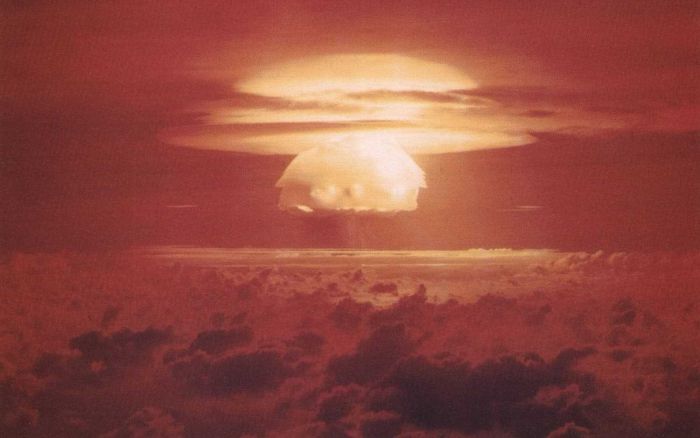The Dangers of Apocalyptic Thinking

This excerpt from Mathew Barrett and Mel Gilles’ The Last Myth: What the Rise of Apocalyptic Thinking Tells Us About America discusses the dangers inherent to embracing an “apocalyptic” view of world crises like global warming, peak oil, and terrorism, the role that the media has played in encouraging such a view, and how such a view prevents any real conversation on actual threats to humanity.
Talking about climate change or peak oil through the rhetoric of apocalypse may make for good television and attention-grabbing editorials, but such apocalyptic framing hasn’t mobilized the world into action. Most of us are familiar with the platitude “When the only tool you have is a hammer, everything looks like a nail.” In a similar way, our over-reliance on the apocalyptic storyline stands between us and our ability to properly assess the problems before us. Some see the looming crises of global warming and resource and energy depletion and conclude that inaction will bring about the end of civilization: only through a radical shift toward clean energy and conservation, those on the Left argue, can we continue the way of life that we have known. Those on the Right dismiss the apocalyptic threats altogether, because the proposed solutions to peak oil, global warming, and overpopulation conflict with core conservative beliefs about deregulation and the free-market economy, or with a religious worldview that believes humanity is not powerful enough to alter something as large as our climate. Still others dismiss the catalog of doom and gloom as mere apocalypticism itself. Surely, we convince ourselves, all the dire warnings about the effects of global warming aren’t that different from the world-ending expectations of the Rapturists?
The result is that the energy we could expend addressing the problems before us is instead consumed by our efforts to either dismiss the threat of apocalypse or to prove it real. Ultimately, the question becomes not what to do about the threats before us but whether you believe in the threats before us.
I’ve written before about growing up during the height of the Cold War, during which various pastors and organizations pointed out “obvious” signs that the Rapture was nigh. Talk about apocalypticism. Unfortunately, such apocalypticism often engendered, not a desperation to help and care for those around us, but rather, a certain smugness and self-righteousness that led to a ghettoizing “circle the wagons” mentality. This part of the article also jumped out at me:
The apocalyptic storyline becomes a form of daydreaming escape: the threat of global warming becomes a fantasy to one day live off the grid, or buy a farm, or grow our own food; economic collapse becomes like a prison break from the drudgery of meaningless and increasingly underpaid work in a soul-crushing cubicle; peak oil promises the chance to finally form a community with the neighbors to whom you’ve never spoken. Yet despite the fantasia peddled by Hollywood and numerous writers, a world battered by natural disasters and global warming, facing declining natural resources and civic unrest, without adequate water or energy or food, with gross inequalities between the rich and the poor, is not a setting for a picaresque adventure, nor is it the ideal place to start living in accord with your dreams.
Back in my dispensationalist days, when the Rapture was ever drawing nigh, it wasn’t uncommon for my church friends and I to fantasize about the Rapture scenarios. Much of this was driven by the fantastical imagery in the Book of Revelation, and our poor interpretations of it. Again, rather than draw proper inspiration from such imagery, we allowed ourselves to get caught up in a sort of lurid action movie fantasy that had more in common with a Rambo film than anything else. In other words, we bought into apocalypticism and then some.